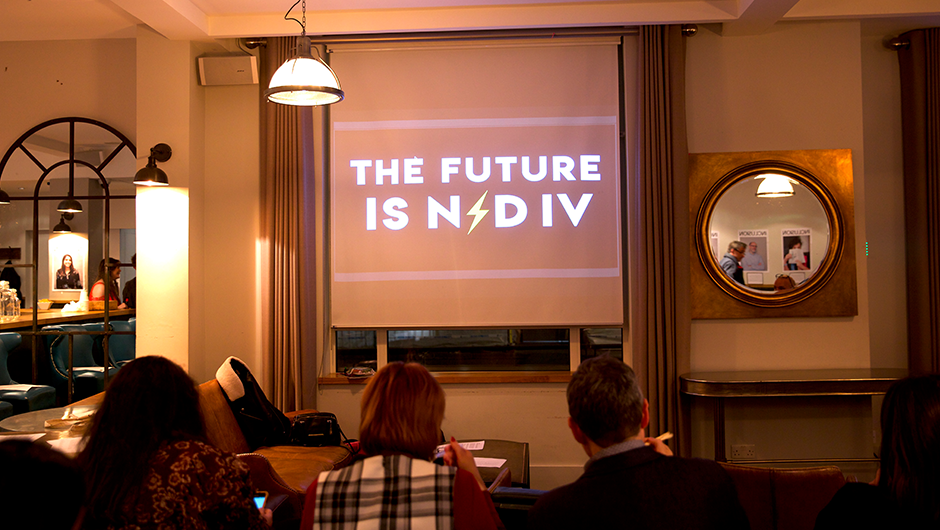
The Future is ND IV
“When you don’t think like other people, you make other people think.” – Tom Sharp
The ability to ‘think differently’ is said to be a treasured characteristic in the creative industries, but being neurodivergent in adland can be a challenging and isolating experience. In our fourth event we focused on strategies that can help to ensure our unique skills are recognised and allowed to thrive.
FND founder Lucy Hobbs set the tone for the evening with the above line by Tom Sharp, a poet and creative director at The Beautiful Meme, urging us to embrace our differences as the strengths that they are.
She then handed over to John Alison, Head of Original Content at Warner Music, who spoke about what we as individuals can do to insulate ourselves from the hard knocks that are familiar to anyone navigating the industry, and that can hit even harder for ND creatives. His take-home message: “build a support network for when the wheels fall off’
Next up was Oli Monks – Autism advocate and founder of Place with Purpose; a consultancy that specialises in helping businesses to build more accessible workspaces. He urged companies to “think about designing spaces which are neurodiverse friendly”, taking on board the needs of autistic and other ND employees.
Monks has worked extensively with the ND community to get their input on their priorities, resulting in some innovative ideas that employers could put into practice in order to enable, not disable, their staff.
He handed over to Leena Haque – Senior UX Designer and Neurodiversity Lead at BBC Cape. Haque has brilliantly captured the experience of being neurodiverse as “a bit like Alice in Wonderland meets Guantanamo Bay: it can be incredibly beautiful but, on a sensory level, quite painful at the same time.“
She focused on the relatively minor adjustments that employers can make to vastly improve the experience of their ND employees and break down any existing barriers to success. The statistics on employment for autistic adults are sobering, with only 16% in employment, and with statistics absent for many other neurodivergences, the stakes could not be higher.
“A small difference can make a huge change” — Leena Hacque
Rounding off the evening’s talks was Michael Vermeersch – Digital Inclusion Lead at Microsoft. He spoke of his past difficulties in finding a workplace where his talents could flourish, and of how his earlier experiences were the ideal training ground for his current role heading up Microsoft’s Digital Inclusion department.
Here, he is well placed to help others achieve their potential on a significant scale, and his take-home message was one of empowerment:
“Neurodiversity doesn’t need fixing, it needs empowerment” — Michael Vermeersch
–
Words: Abi Silvester













